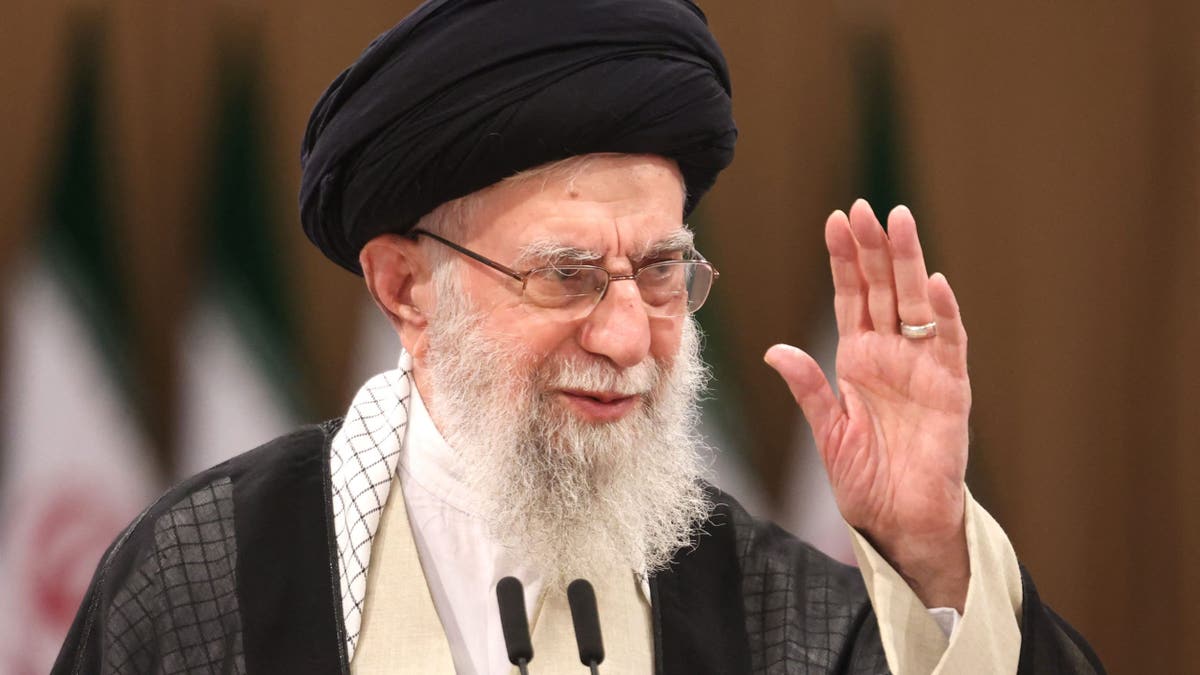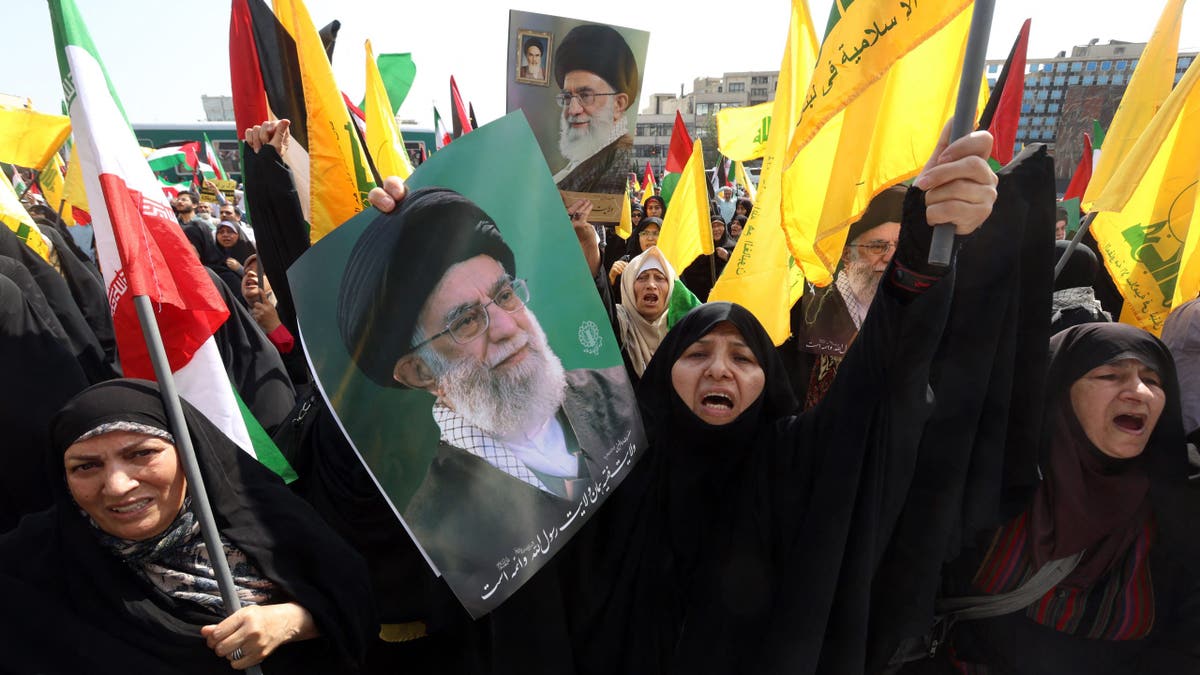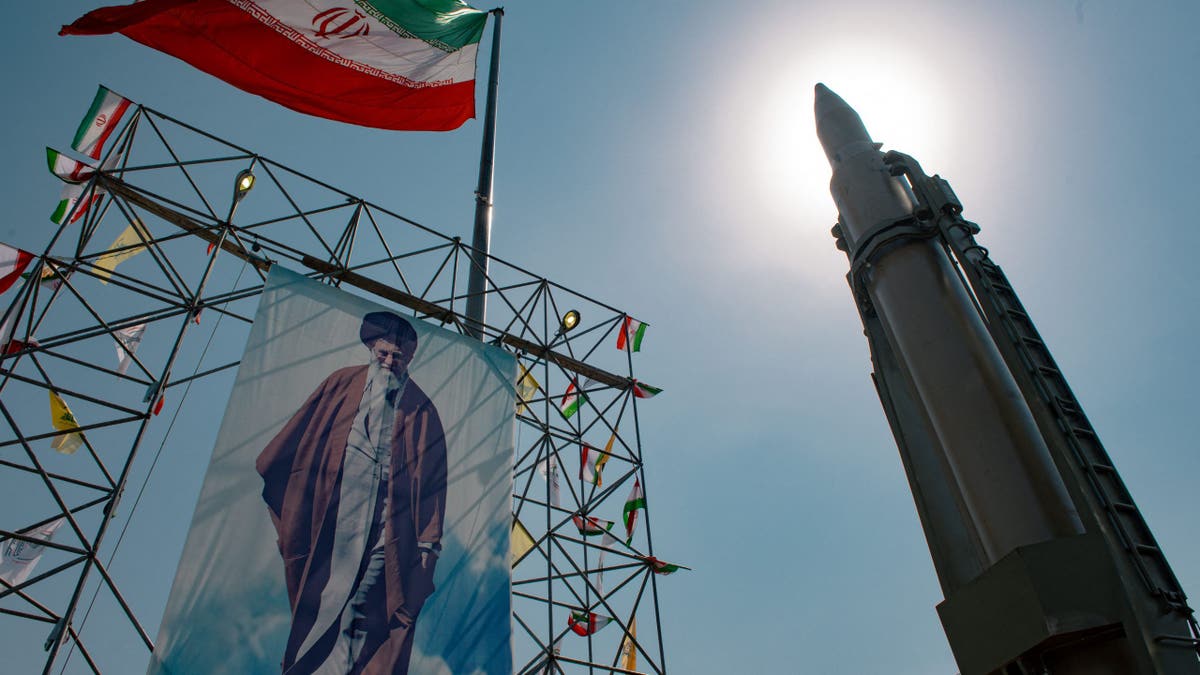Iran’s Supreme Leader Ayatollah Ali Khamenei has moved into hiding and remains at a secure location within the country, sources told Reuters.
The decision came in response to Israel’s strikes outside Beirut on Friday that killed the leader and founding member of the Iran-backed terrorist group Hezbollah, Hassan Nasrallah.
Two sources also told Reuters that Iran reached out to Hezbollah and other proxy forces in the region to determine what action to take in response to Nasrallah’s killing.
In a statement Saturday, Khamenei said, “The fate of this region will be determined by the forces of resistance, with Hezbollah at the forefront.”
ISRAELI FORCES SAY HEAD OF HAMAS IN SOUTHERN SYRIA KILLED IN STRIKE

Iran’s supreme leader Ayatollah Ali Khamenei speaks after casting his ballot during the runoff presidential election in Tehran on July 5, 2024. (ATTA KENARE/AFP via Getty Image)
While announcing five days of public mourning, Khamenei called Nasrallah “the flag-bearer of resistance” in the region.
“The blood of the martyr shall not go unavenged,” Khamenei said, according to Reuters.
Iranian media reported on Saturday that the Israeli strikes outside Lebanon’s capital also killed the Iranian Revolutionary Guards’ deputy commander, Abbas Nilforoushan.
Israel has killed several other top Hezbollah commanders in Beirut, especially in the past two weeks, in addition to the attack that killed Nasrallah.
Earlier this month, thousands of explosives hidden in pagers and walkie-talkies used by Hezbollah detonated, killing at least a dozen people and injuring thousands, according to officials in Lebanon. Israel is widely believed to be behind the attack but has neither confirmed nor denied responsibility.
Reuters cited one Iranian security official as revealing that the Revolutionary Guards is carrying out a large scale operation to inspect all communications devices.
Most of the devices were made in Lebanon or imported from China and Russia, the official said, as Iran is conducting a thorough investigation centered on mid- and high-ranking members of the Revolutionary Guards.
Iran is considering the possibility of infiltration by Israeli agents, including Iranians paid by Israel, the official told Reuters.

A demonstrator raises a picture of Iran’s Supreme Leader Ayatollah Ali Khamenei during an anti-Israel protest in Tehran on Sept. 27, 2024. (AFP via Getty Images)
In response to Nasrallah’s death, hundreds of protesters took to the streets of Tehran, waving Hezbollah flags and chanting, “Death to Israel,” and, “Death to Netanyahu the murderer,” the Associated Press reported.
Iranian President Masoud Pezeshkian partially blamed the United States for Nasrallah’s killing, given that Washington has been providing weapons to Israel.
“The Americans cannot deny their complicity with the Zionists,” he said in a statement aired by state media, according to Reuters.
ISRAEL TARGETS HEZBOLLAH LEADER NASRALLAH IN STRIKE ON BEIRUT HEADQUARTERS
Hezbollah started firing rockets on Israel in support of Gaza on Oct. 8, a day after Hamas terrorists launched an unprecedented attack on Israel, killing some 1,200 people and taking another 250 as hostages.
Since then, the two sides have been engaged in escalating cross-border strikes. Iran’s proxies include Hamas in Gaza, Hezbollah in Lebanon, Houthis in Yemen, as well as other forces operating in Iraq. The Houthis have been launching missiles at Israel and ships in the Gulf of Aden and the Red Sea along the Yemeni coast following the Oct. 7 attacks.
In his first public remarks since Nasrallah’s killing, Israeli Prime Minister Benjamin Netanyahu said Israel’s targeting of Nasrallah was “an essential condition to achieving the goals we set.”
“He wasn’t another terrorist. He was the terrorist,” Netanyahu said.

Iran’s Supreme Leader Ayatollah Ali Khamenei is depicted on a banner next to a ballistic missile in Baharestan Square in Tehran, Iran, on Sept. 26, 2024. (HOSSEIN BERIS/Middle East Images/AFP via Getty Images)
Netanyahu said Nasrallah’s killing would help bring displaced Israelis back to their homes in the north and would pressure Hamas to free Israeli hostages held in Gaza. But with the threat of retaliation high, he warned the coming days would bring “significant challenges” and warned Iran against trying to strike.
Iran’s U.N. Ambassador Amir Saeid Iravani wrote a letter to the heads of the United Nations and the Security Council on Saturday calling for an emergency council meeting over the attack that killed Nasrallah.
“Using U.S.-supplied thousand-pound bunker busters,” he wrote, Israel killed Nasrallah and Nilforoushan, among others.
CLICK HERE TO GET THE FOX NEWS APP
He warned Israel not to attack any of its diplomatic or consular premises, or its representatives, according to the AP.
“Iran will not hesitate to exercise its inherent rights under international law to take every measure in defense of its vital national and security interests,” Iravani wrote.
The Associated Press contributed to this report.
